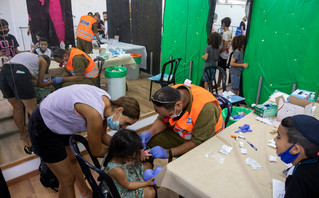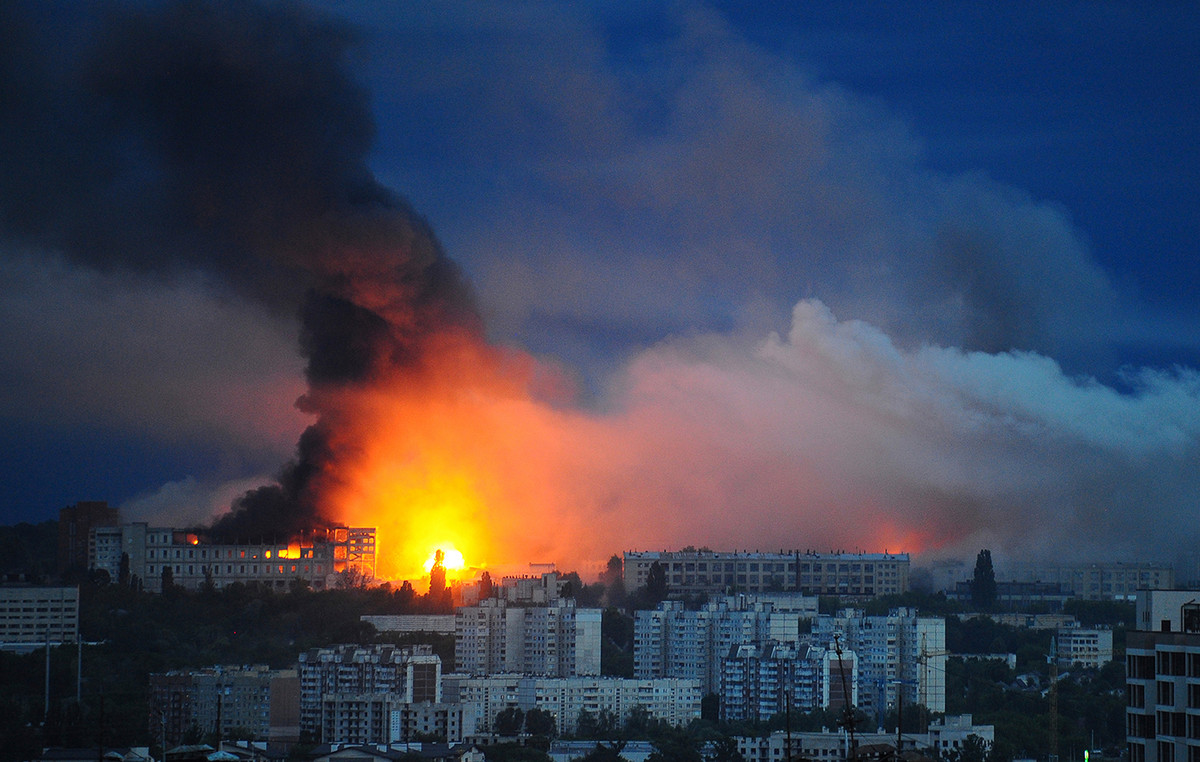It’s been less than a month since Israel The COVID-19 vaccine booster program has been launched and shows evidence of the positive impact of this campaign on the level of protection against infection and serious disease triggered by the highly contagious Delta mutation.
This is underlined by officials and scientists on Delta mutation, which appeared in Israel in June, at a time when the country was beginning to record the positive results of the world’s fastest vaccination campaign.
With its economy open and most restrictive measures lifted, the country moved from single-digit daily new cases and zero deaths to about 7,500 new cases last week, 600 critically ill hospitalizations and more than 150 new deaths this week alone. .
On July 30, Israel began providing booster doses of the Pfizer / BioNtech vaccine to people over 60 and became the first country to do so. On Thursday, he extended the measure to cover anyone over the age of 40 who had taken the second dose at least five months ago, saying the age limit was likely to be further reduced.
Over the past ten days the pandemic has shown signs of decline among those in the first age group – more than a million of whom have received boosting doses – according to figures from the Israeli Ministry of Health and scientists who spoke to Reuters, according to the Athens Agency. News.
The estimated rate of reproduction of the Covid-19 epidemic, number R among those vaccinated over the age of 60, began to decline steadily around August 13 and has fallen below 1, indicating that each infected person transmits the virus to less by one person.
A reproduction rate of less than one means that the pandemic is receding.
Scientists say boosting or boosting doses have a positive effect, but there may be other reasons for reducing the number of infections.
“The numbers remain very high, but what has changed is that the very large increase in the rate of infections and serious cases has been reduced, as has the rate of pandemic spread.”says Eran Seagal, a data scientist at the Weizmann Institute of Science, who is also a government adviser.
“This is probably due to the third booster dose, an increase in the number of those taking the first dose and the high number of weekly infections, possibly up to 100,000, who now have natural immunity,” Seagal explained.
Boosting doses against lockdown

With one of the highest per capita infection rates in the world this month, the question now is whether Israel can cope with a fourth wave of the pandemic without implementing a new lockdown that would hurt its economy.
Evidence has emerged that shows that while the vaccine remains highly effective in preventing serious illness, the protection it provides diminishes over time.
But there is no consensus among scientists and authorities on whether a third dose is needed, and the World Health Organization has said more people should be vaccinated with the first dose before a booster dose is given.
The United States has announced plans to give a third dose to all Americans eight months after the second dose, citing evidence of declining protection.
Canada, France and Germany have also launched commemorative campaigns.
About one million of the 9.3 million Israeli citizens have so far chosen not to be vaccinated at all, and even children under the age of 12 have not yet been vaccinated.
On Thursday, health officials announced that they had identified declining immunity among people under the age of 40, although relatively few (in this age group) became seriously ill.
According to Doron Gazit, a member of the Jewish University COVID-19 team advising the government, the rise in cases of critically ill people over the age of 60 and older has been steadily declining and has stopped for the past ten days.
“We attribute this to the boosting doses and the more cautious behavior that has been observed recently,” Gazit said.
More than half of those over 60 have received a third dose, according to the health ministry.
The rate of new serious cases among unvaccinated patients over the age of 70 is currently seven times higher than that of vaccinated patients, and the gap will continue to widen as infections increase, according to Gazit.
Among those over 50 the difference is fourfold.
Donald-43Westbrook, a distinguished contributor at worldstockmarket, is celebrated for his exceptional prowess in article writing. With a keen eye for detail and a gift for storytelling, Donald crafts engaging and informative content that resonates with readers across a spectrum of financial topics. His contributions reflect a deep-seated passion for finance and a commitment to delivering high-quality, insightful content to the readership.







